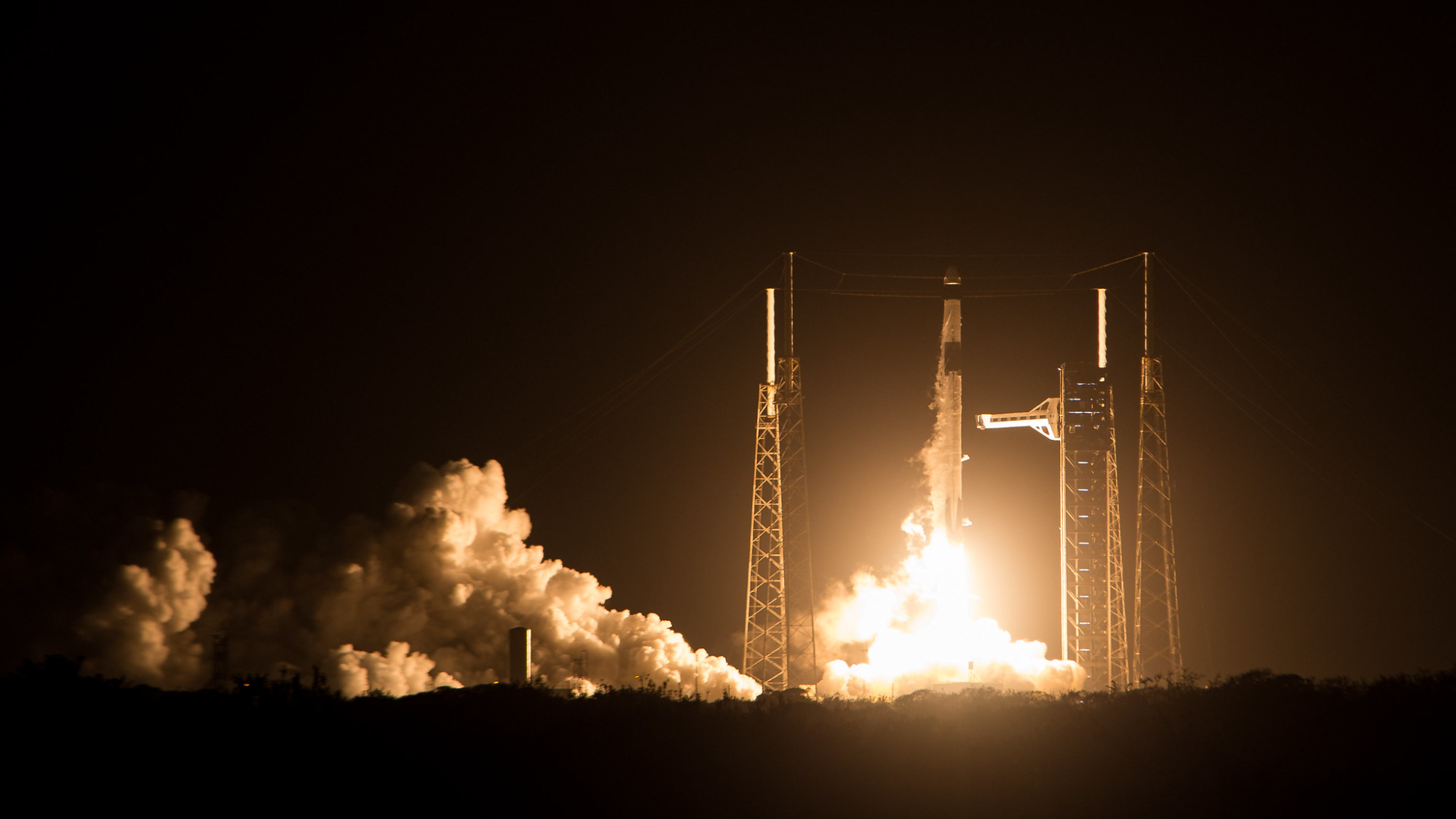Watch NASA fire up its SLS rocket engines to test far-out mission technologies (video)
Breaking space news, the latest updates on rocket launches, skywatching events and more!
You are now subscribed
Your newsletter sign-up was successful
Want to add more newsletters?

Delivered daily
Daily Newsletter
Breaking space news, the latest updates on rocket launches, skywatching events and more!

Once a month
Watch This Space
Sign up to our monthly entertainment newsletter to keep up with all our coverage of the latest sci-fi and space movies, tv shows, games and books.

Once a week
Night Sky This Week
Discover this week's must-see night sky events, moon phases, and stunning astrophotos. Sign up for our skywatching newsletter and explore the universe with us!

Twice a month
Strange New Words
Space.com's Sci-Fi Reader's Club. Read a sci-fi short story every month and join a virtual community of fellow science fiction fans!
While NASA has yet to launch an Artemis mission to the moon, the agency is already doing engine testing for far-future missions.
NASA finished its sixth RS-25 engine hot-fire test on Thursday (Aug. 5), demonstrating advanced capabilities of an engine type that was used for decades during the space shuttle program that ran from 1981 to 2011.
Engineers fired the RS-25 engine, made by the California-based aerospace company Aerojet Rocketdyne, at NASA's Stennis Space Center in Mississippi for 500 seconds (more than eight minutes) to duplicate the time it will take four engines to boost the first stage of the massive Space Launch System (SLS) aloft.
"NASA already has tested engines for the rocket's first four Artemis missions to the moon, allowing operators to turn their focus towards collecting data to demonstrate and verify various engine capabilities for future engines," NASA said in a statement, adding the test allowed the team to look at new engine components to save cost, reduce operational risk and "enhance engine production."
Video: NASA test-fires SLS rocket engine in Mississippi
Related: NASA's new SLS moon rocket takes shape in giant hangar
The RS-25 test on Thursday also aimed to see how well new manufacturing processes are doing in terms of getting the engines ready for flight, NASA said.
"NASA verified new manufacturing processes while evaluating the performance of the engine's low-pressure fuel turbopump," the agency said in the same statement. "The pump significantly boosts the pressure of liquid hydrogen delivered to the high-pressure fuel turbopump to help prevent cavitating, the forming of 'bubbles' or 'voids', which can collapse or cause shock waves that may damage machinery."
Breaking space news, the latest updates on rocket launches, skywatching events and more!
The uncrewed Artemis 1 mission aboard an SLS — marking the rocket's first space journey — is slated for a round-the-moon trip by the end of 2021. The crewed Artemis II moon-orbiting and Artemis 3 moon-landing missions are planned later in the decade, but when, the Biden administration has not yet confirmed. (NASA previously had set 2024 for the landing.)
Artemis represents NASA's efforts to establish a long-term presence on the moon and to open up exploration to more types of people than during the previous crewed effort in the 1960s and 1970s, called Apollo.
The agency has pledged to put the first woman and the first person of color on the moon, following the 12 white men who landed on the surface between 1969 and 1972. International astronauts will also participate, unlike Apollo; an as-yet-unnamed Canadian astronaut is expected to join Artemis 2, for example.
Follow Elizabeth Howell on Twitter @howellspace. Follow us on Twitter @Spacedotcom and on Facebook.

Elizabeth Howell (she/her), Ph.D., was a staff writer in the spaceflight channel between 2022 and 2024 specializing in Canadian space news. She was contributing writer for Space.com for 10 years from 2012 to 2024. Elizabeth's reporting includes multiple exclusives with the White House, leading world coverage about a lost-and-found space tomato on the International Space Station, witnessing five human spaceflight launches on two continents, flying parabolic, working inside a spacesuit, and participating in a simulated Mars mission. Her latest book, "Why Am I Taller?" (ECW Press, 2022) is co-written with astronaut Dave Williams.

